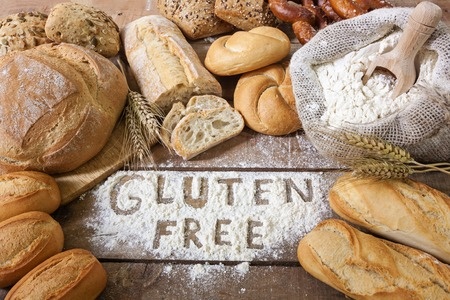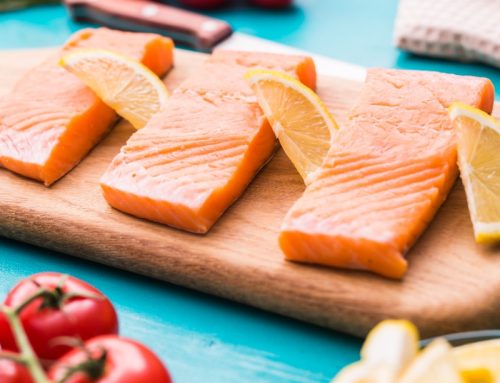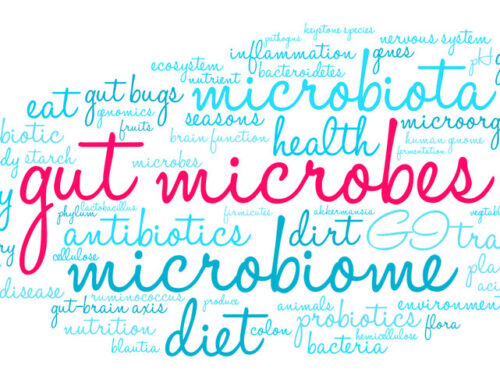Nutrition can be quite confusing. We get contradictory messages in media headlines all the time. So how does a reasonable consumer figure out what is healthy to eat and what should be avoided?
Four Top Nutrition Questions Answered
Abby Langer is a registered dietitian who has worked extensively both in clinical nutrition, and nutrition media and consulting.
She recently asked her social media followers to send her their top nutrition questions. Here are the most frequently asked questions and her responses:
1. Should I Avoid Gluten?
Gluten isn’t inherently bad for everyone. You should only avoid gluten if your body has an adverse reaction to it. According to the National Institute of Diabetes and Digestive and Kidney Diseases (NIDDK), gluten is a protein present in wheat, barley, and rye,
It does make sense for some people to avoid gluten, like those with celiac disease, whose bodies basically hate this protein. In people with celiac disease, gluten can damage the small intestine, leading to symptoms like bloating, abdominal pain, diarrhea, constipation, gas, and vomiting. Then there are people with non-celiac gluten sensitivity or gluten intolerance, who do not experience the small intestine damage but experience symptoms like fatigue and stomach pain after having this protein.
According to the Mayo Clinic, it might also a good idea to avoid gluten if you have a wheat allergy, which is essentially an immune overreaction to gluten or another wheat protein. Symptoms include mouth and throat swelling or irritation, hives, diarrhea, and in severe cases, anaphylaxis (throat tightness that can lead to difficulty breathing).
But if you don’t have these types of medical issues, there’s no point in cutting gluten out of your diet. A 2018 article in Gastroenterology and Hepatology explained that eating a medically unnecessary gluten-free diet is unlikely to result in substantial health benefits. Doing so could even lead to nutritional deficiencies if you cut out too many foods to try to avoid gluten. And, if you’re interested in nixing gluten to avoid calories, know that a food isn’t inherently healthier or less caloric simply because it’s gluten-free.
2. Do I Really Need To Eat Breakfast?
If you find that breakfast is helpful for keeping you full until lunch and boosting your energy levels, by all means, keep at it. However, if you’re the type of person who never eats breakfast and manages fine without it, then there’s probably no reason to start eating it now.
Research on this topic is mostly inconclusive. For every study that shows breakfast is beneficial for some reason, there’s another that shows the opposite. That’s especially true when it comes to weight, a major focus of breakfast-related research.
One prevailing school of thought is that regularly eating breakfast may help with weight loss by increasing metabolism and boosting satiety. But the other school of thought is that skipping breakfast could help contribute to weight loss if that means eating overall fewer calories than normal because there’s no guarantee that it will lead to eating more later in the day.
If you are going to eat breakfast because it’s your favorite part of the day or it gives you a ton of energy or whatever other reason, it should include a lot of filling protein. Although this varies based on factors like your weight and activity level, about 20 grams of protein at breakfast should help keep you full until lunch.
3. Is It OK To Eat Carbs?
YES! Carbohydrates are not only delicious, but they’re nourishing as well. Carbs are our bodies’ first-line energy source. You need carbs to function. However, there are times when it makes sense to modify how many carbohydrates you eat or the type you’re usually including in your diet.
For instance, if you have type 1 or type 2 diabetes, you should work with your doctor to determine how many carbohydrates are safe for your daily consumption since they affect your blood sugar.
Cut out refined carbohydrates, because they are empty calories and have little nutritional value. While you don’t need to remove these from your life entirely, focus on eating more on complex carbohydrates. Your body takes longer to break down the complex carbohydrates present in foods like whole grains, legumes, and starchy vegetables than it does the refined carbs in foods like cookies and crackers. This keeps you full longer and provides more long-lasting energy.
4. Why Is Dairy Suddenly Bothering My Stomach?
You used to be able to go to town on a cheese plate without issue. Now your stomach burbles if you so much as glance at a wedge of brie. If you routinely experience issues like bloating, gas, and abdominal discomfort after eating dairy, you may have lactose intolerance.
Over time, your small intestine can begin to have difficulty digesting lactose, the sugar naturally found in dairy. And because this can develop gradually, it may take a while for you to figure out exactly why your stomach gets upset every time you have dairy.
If you think you might have lactose intolerance, see a gastroenterologist who can diagnose you. After that, a nutritionist or registered dietitian can offer tips for coping with lactose intolerance, like eating hard cheeses that have less lactose than other varieties or using supplements containing the lactase enzyme that will help you digest dairy.
Click here to read the full article about nutrition tips.







